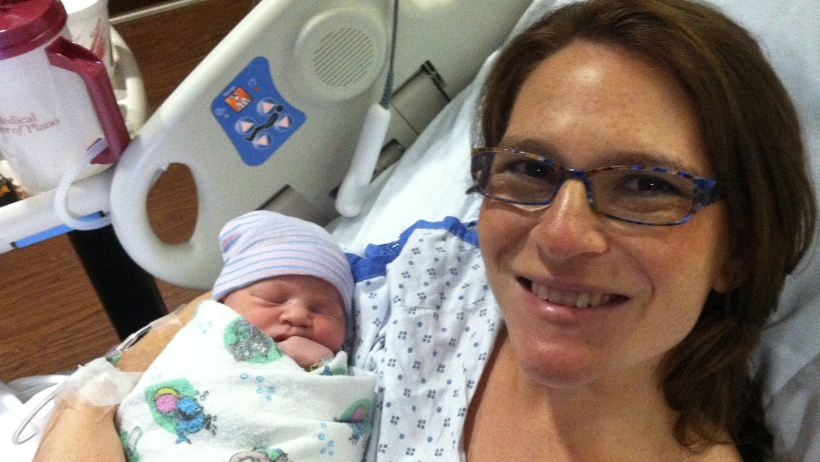I’m in that category of women who have never actually experienced a contraction or labor pains. Because of a fluke eye hemorrhage, I was required to have my daughter via C-section and subsequently chose to deliver my son that way as well. I didn’t go into early labor in either case, so clearly both of my children were perfectly content to remain where they were. Both arrived at full term on their due dates via the skilled hands of my medical team.

It may sound like I ended up with the easier option, avoiding labor, but a C-section is no picnic either. There was plenty of pain and discomfort involved, especially in the recovery process. In fact, I’m sure when I took those first few steps in my hospital room after Shiri was born, I vowed I would never go through that again. But then of course I did. And I’m certain I’m not the only woman to have sworn off childbirth while in the pain of labor or the recovery after a C-section. Even our ancient texts cover birth in a variety of ways besides just the ancestry side.
This week we read from Parshat Tazria, one of two portions in the Torah that deal explicitly and fully with transitioning in and out of states of purity. The text begins with the notion of “impurity,” specifically the transitional states after childbirth, and continues with the treatments and prescriptions for what to do when a person is in need of cleansing of both body and material items in order to reenter the world.
The text begins with the offerings a woman must make after she gives birth. This is seen primarily as an offering of gratitude for having survived the experience of childbirth; however, a commentator from the Talmud in Tractate Niddah teaches that this offering is to annul a vow of “never again” that a woman might make after the pain of giving birth. The creation of new life is powerful, spiritual, and painful, and the text in this week’s parshah is aware of this enough to understand that in the heat of the moment we might make statements we don’t mean to uphold.
Whether in regard to childbirth or any physically or emotionally draining experience, the Torah gives us the ability to atone for our poor choices, even our choice of words. While we always want to choose our words carefully, this is a helpful reminder that no one is perfect. The best we can do is acknowledge our shortcomings and our unintended vows so we can move on and do better.



